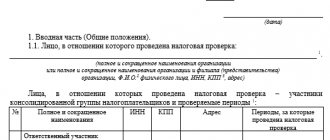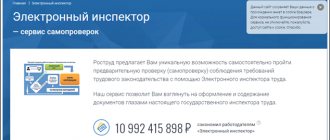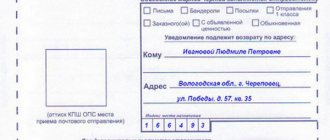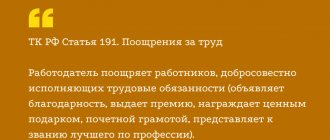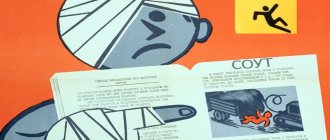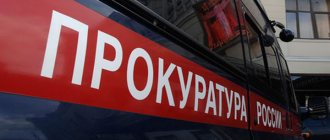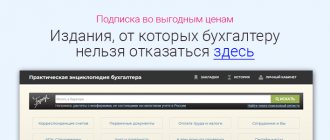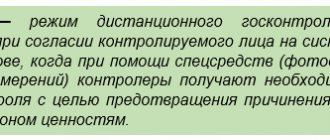Design rules
Registration of the results of control (supervisory) activities, including documentary and on-site inspections, is regulated by Art. Chapter 87 16 of the Federal Law of July 31, 2020 No. 248-FZ “On state control (supervision) and municipal control in the Russian Federation.”
In general, the results of control (supervisory) activities, which are reflected in the act, Law No. 248-FZ includes:
- assessing the controlled person’s compliance with mandatory requirements;
- creating conditions for preventing violations of mandatory requirements and/or stopping their violations;
- restoration of the violated position;
- sending information to authorized bodies or officials to consider the issue of bringing to justice;
- application by the control (supervisory) body of the measures provided for in paragraph 2 of Part 2 of Art. 90 of Law No. 248-FZ.
In the latter case, we are talking about the immediate adoption of measures to prevent harm (damage) to legally protected values or to stop its infliction, up to going to court with a demand:
- on the forced recall of products (goods) that pose a danger to life, health and the environment;
- on the prohibition of the operation and use of buildings, structures, structures, premises, equipment, vehicles and other similar objects;
- on bringing to the attention of citizens and organizations in any available way information about the presence of a threat of harm (damage) and ways to prevent it, if during the event it is established that the activities of a citizen/organization owning and/or using the object of control, operation and use of buildings/ buildings/structures/premises/equipment/vehicles and other similar objects, the goods produced and sold by them/work performed/services provided pose an immediate threat of harm or that such harm has been caused.
A report of a control (supervisory) event involving interaction with a controlled person is drawn up upon its completion.
Also see “ What types of control and supervisory activities can be carried out by control (supervision) bodies from 2022. ”
| SITUATION | WHAT SHOULD BE IN THE ACT |
| Based on the results of the interaction event, a violation of mandatory requirements was identified | What specific mandatory requirement is violated ? What normative legal act and its structural unit established it. |
| The identified violation was eliminated before the end of such control (supervision) activity | The fact of its elimination |
The inspection report must indicate the type of event - planned/unscheduled/scheduled remote/unscheduled remote.
If the results of a control (supervisory) activity contain state, commercial, official or other secrets protected by law, the report is drawn up in compliance with the relevant requirements.
The control (supervisory) body does not provide , at the request of third parties, reports of inspections and other activities, if (Part 5 of Article 12 of Law No. 248-FZ) during their course:
- no violations of mandatory requirements were identified;
- The rights of the person making the request are not affected.
Law No. 248-FZ allows that certain types of control (supervision) or certain corresponding powers can be exercised by state or municipal institutions. But their inspectors, as a general rule, do not have the right to draw up reports of control (supervisory) activities. Although otherwise may be established by federal laws on types of control, regional laws.
Presentation of certificate
On the last day of the on-site inspection, the inspector must draw up a certificate of the inspection performed (Clause 15, Article 89 of the Tax Code of the Russian Federation). It, in particular, indicates the subject and timing of the inspection. The certificate must be drawn up in the form approved by order of the Federal Tax Service of Russia dated 05/08/2015 No. ММВ-7-2/189.
The tax inspector must hand over the completed certificate to the legal or authorized representative of the organization. This must be done on the last day of the on-site inspection. A representative of the organization must sign for receipt of the document, decipher the signature and date it. An authorized representative of the company must also indicate the grounds for his representation - the name and other details of the document confirming his authority.
If a representative of the organization refuses to receive a certificate, the inspection may send a certificate of the inspection carried out by registered mail (clause 15 of Article 89 of the Tax Code of the Russian Federation). It will be considered received by the organization on the day the letter is delivered according to the postal notification stamp. It is clear that in this case the signature of the organization’s representative on the inspection certificate is not needed. It is important to understand that the time frame for further processing of the on-site inspection is counted not from the date of delivery of the letter, but from the date of drawing up the certificate (clause 3 of the letter of the Federal Tax Service of Russia dated December 29, 2012 No. AS-4-2/22690).
The tax office can also send an audit certificate to organizations via the Internet.
Assess the financial condition of your company using Kontur.Expert
Send a request
Inspection report form
Order of the Ministry of Economic Development of Russia dated March 31, 2021 No. 151 approved the standard forms of the act:
- test purchase (Appendix No. 8);
- monitoring procurement (Appendix No. 9);
- sampling control (Appendix No. 10);
- inspection visit (Appendix No. 11);
- raid inspection (Appendix No. 12);
- documentary verification (Appendix No. 13);
- on-site inspection (Appendix No. 14).
For more information, see “ New forms of decisions and acts on inspections from July 1, 2021. ”
Registration of desk tax audit results
So, KNI is carried out in relation to all declarations received by the tax authorities. If everything in the declaration is in order, for the taxpayer the audit proceeds quietly and unnoticed: no decision is made to start it, and no documents are drawn up based on its results (except for the KNI for VAT refund).
The situation is different when inspectors identify violations. In this case, upon completion of the inspection, they are required to draw up a report.
Read more about what it should contain, what it looks like and what the consequences of not having it compiled are in this article.
Note! The progress of the desk audit can be influenced by submitting clarifications. This is important for those who themselves have discovered errors in a declaration that has already been submitted.
Read about how to use clarifications wisely and what you can argue with the tax authorities in the following articles:
- “A clarification submitted after the delivery of the KNP act will not prevent a decision on it”;
- “When making a decision on an inspection, inspectors must take into account the “clarifications” submitted before its adoption.”
Another important clarification: the inspection report is essentially an informational document. By itself, it does not give rise to any consequences for the person being audited, but only informs that during the audit certain facts were discovered that may indicate that the taxpayer committed violations. This means that you cannot appeal what is stated in the act yet. At the same time, you have the opportunity to influence the review decision by filing objections.
Read about how they are designed in this publication. There is also a ready-made sample of objections to the KNP act.
The entire subsequent procedure and actions with the camera report are similar to those provided for on-site inspection reports. We'll talk about them further.
Place and time of execution of the inspection report
The report is filled out as a general rule at the place of the control (supervision) event on the day it ends. But a different procedure for drawing up the act may be established by the Government of the Russian Federation.
If the control (supervisory) activity has been agreed upon with the prosecutor's office, the act immediately after its execution is sent to the prosecutor's office through the Unified Register of Control (Supervisory) Activities.
Also see “ What is the Unified Register of Control (Supervisory) Activities from July 1, 2021. ”
Familiarization with the act
As a general rule, the controlled person or his representative becomes familiar with the contents of the act at the place of the control (supervision) event.
However, in the following cases, the act is sent to the controlled person in accordance with Art. 21 of Law No. 248-FZ:
- conducting a documentary check;
- carrying out control (supervisory) activities without interaction - i.e. monitoring compliance with mandatory requirements or on-site inspection;
- drawing up a report on the spot is impossible due to sampling (samples), testing, and examination.
According to the rules of this article, inspectors send the report in the form of an electronic document and sign it with an enhanced qualified signature. They place it in the Unified Register of Control (Supervisory) Activities, and also submit it through the personal account of the State Services website (if you have a full account and completed registration on it). It is also possible to send the act to an individual (not an individual entrepreneur) by email.
But until December 31, 2023, it remains possible to send an inspection report on paper by regular mail in the following cases:
- inability to do this electronically;
- availability of such a request from a controlled person (the deadline for executing such a request is up to 10 working days).
However, the Government of the Russian Federation or regulations on the type of control (supervision) may establish otherwise.
School ratings will be affected by the results of their sewer inspections
Sewage flushes in Moscow schools will be checked for traces of narcotic substances. They intend to conduct this experiment in half of the capital's educational institutions.
Photo: pexels.com
As Izvestia writes, the capital’s Department of Science and Education signed a contract with Skoltech, according to which wastewater will be tested in schools in Zelenograd, Troitsk and the Kotlovka district. In total, more than 300 educational institutions will take part in the experiment, including Lyceum No. 1535 and School No. 1518.
They began taking samples at the end of February and will do this every day. It is planned to monitor the situation until the end of 2023. The results will affect the school’s “welfare rating.”
As Ruslan Isaev, president of the Independent Narcological Guild, said, such an idea is not new; such studies have been carried out in other countries and have proven effective as a method of identifying disadvantaged areas and monitoring the level of psychoactive substance use. It is technically important for how long and for what number of substances the analysis will be done.
Based on the contract price, Ruslan Isaev assumed that 140 thousand rubles per year would be spent on monitoring in one school. Since new substances are constantly emerging, it is important that the list of those for which effluents are intended to be studied is adequate to reality.
However, monitoring alone is unlikely to help cope with the problem of the spread of drug addiction. The expert is confident that this requires an integrated approach. Once it is possible to identify schools with close to critical levels of drug use, it is necessary to organize targeted work on prevention, treatment and rehabilitation, involving specialists. By itself, data on prosperous and not so prosperous schools will not change the situation in any way.
A global study of wastewater for the presence and concentration of narcotic substances in it was carried out in 120 cities in 37 countries. As a result, they compiled a list of the most disadvantaged cities in this regard. They turned out to be Antwerp, Amsterdam, Zurich, London, Barcelona. The calmest situation is observed in Greece, Portugal, Finland, Poland and Sweden.
As Tatyana Meteleva, head of the rehabilitation center, noted, recently addiction has been observed at an increasingly younger age. In rehabilitation centers, a quarter of the patients are teenagers. They begin to try alcoholic beverages and drugs at the age of 12. In her opinion, although monitoring of wastewater is relevant, it would be more effective to regularly test students from grades 5-6 - with parental consent. The earlier a problem is detected, the easier it can be solved. In addition, preventive measures remain important - lectures for both schoolchildren and parents. Schoolchildren need to be told about the consequences of drug addiction, parents - about the symptoms of addiction, as well as existing ways to solve the problem.
Unfortunately, families who are faced with it do not always turn to specialists - either out of ignorance or out of fear and shame. However, experts remind that the problem is very common today and does not only affect dysfunctional families. It is important to understand that a child can be saved with the help of competent specialists.
As for the legal side of the initiative to monitor school sewage, the legal consequences of the discovery of narcotic substances in them have not yet been determined. It is also not clear what actions the police will have to take, since there is no practice in such cases yet. For now, as noted by Maria Spiridonova, a member of the Russian Lawyers' Association, the initiative suggests itself to notify law enforcement officers of the need to conduct preventive lectures for students and teachers of a particular school.
Earlier, the online publication Uchitelskaya Gazeta reported that in North Ossetia, schoolchildren were told about criminal liability for the use and possession of narcotic substances.
If verification is not possible
By virtue of Part 10 of Art. 65 of Law No. 248-FZ, the inspector draws up a report on the impossibility of carrying out a control (supervisory) event involving interaction on 3 grounds:
- the controlled person is absent from the location (conduct of business);
- actual non-performance of activities;
- other actions/inaction of a controlled person that resulted in the impossibility of carrying out or completing the event.
In this case, the act must indicate the reasons and inform the controlled person about this. Then the inspector has the right to carry out control (supervisory) actions within the framework of the specified event at any time before its completion.
In addition, an authorized official of the control (supervisory) body has the right to decide to conduct the same event without prior notice and without agreement with the prosecutor's office .
How to find out about verification
You can find out about the upcoming inspection in the unified electronic register of CNM (control and supervisory activities), which is maintained by the Prosecutor General's Office. The new register concentrates all the information about the inspections: by which department and in what time frame they were carried out, what decisions were made based on the results, how they were carried out, who was punished and how.
We tell you more about the registry here.
In addition, controllers are required to notify the businessman about an inspection or other control (supervisory) event (with the exception of such events as test purchase, monitoring purchase, sample control and inspection visit).
You will be notified of an unscheduled on-site inspection no later than 24 hours in advance. Laws on specific types of controls may provide exceptions to this rule. For example, they will not notify the catering company when carrying out sanitary and epidemiological control (Article 44 of the Federal Law of March 30, 1999 No. 52-FZ “On the Sanitary and Epidemiological Welfare of the Population”).
In some cases, information about the inspection enters the register immediately after the control event. For example, during an on-site inspection that developed into a test purchase.
Controllers are not required to notify of any unscheduled inspection if there is information about an immediate threat of harm (Article 66 of Law No. 248-FZ).

